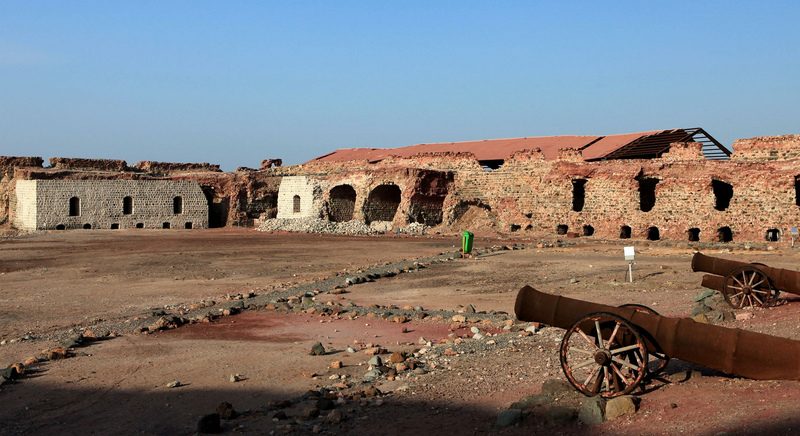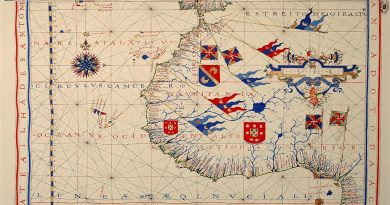If the World Were a Golden Ring, Hormuz Would Be the Jewel in it
If the world were a golden ring, Hormuz would be the jewel in it [1]
In the 16th and 17th centuries, the Persian island of Hormuz had a distinctive feature: it had a king who was a tributary to the King of Lusitania. Paradoxically, this was a time when Safavid chronicles evoked a universe with Persia at its centre and presented a realm ruled by monarchs who were seen as God’s vice-regent. Given this grandiose self-identification, how was it that that Persia tolerated an arrangement with the Portuguese that lasted over 100 years? What was the nature of this encounter? Did the Portuguese come as traders or as conquerors?
‘The Persian–Portuguese Encounter in Hormuz: Orientalism Reconsidered’
The article, ‘The Persian–Portuguese Encounter in Hormuz: Orientalism Reconsidered’ published in the journal, Iranian Studies, Volume 50, Issue 1, January 2017, sketches the contours of these interactions and makes the case that the Portuguese came to Hormuz as traders – albeit ruthless ones. However, they did little to establish a permanent territorial presence or to establish communities of Portuguese settlers as they did elsewhere in Asia/East Indies.
The article qualifies this encounter as an episode of economic imperialism rather than the harbinger of a long-term pattern of Western imperialism, a narrative which buttresses Iranian nationalist sentiment about the Portuguese holding of the island from 1515-1622. The paper questions the accuracy of this narrative by advancing a new interpretative framework extracts the Portuguese experience in Hormuz from the epistemological toolbox of Edward Said’s ‘Orientalism’. Limited in aim and reach, Lusitanian activities on Hormuz cannot be brought under the generic rubric of ‘Orientalism’, which is embedded in European colonial tradition, and which by extension, buttresses Iranian nationalist sentiment about the Persian-Portuguese entanglement. Whilst there was a complex interplay of commercial interests and brutal methods, on this strategic entrepôt, Portuguese ambitions in Hormuz were confined and not holistically ‘colonial’ or ‘imperial’.
The paper explains how Portuguese objectives diverged from the 18th and 19th century rationalist scientific traditions of the British, French and Germans professing a civilising mission as a rationale for colonial policies. Whereas the Portuguese operated from a worldview that combined profit, dynastic pride, and religious rhetoric the Portuguese mission to Hormuz was not guided by a grand discourse of civilising the ‘other’- one of the foundational pillars of Said’s ‘Orientalist’ narrative.
The paper presents evidence to support the argument that an all-encompassing colonial or Orientalist narrative cannot be applied to the holding of Hormuz. Instead the study conceives an integrative narrative of the Perso-Luso past: one that does not reduce the 107-year holding of Hormuz to simply another dark episode of European colonial history.
The article advances a new interpretative framework that sheds a more even light on the Persian-Portuguese entanglement. It assesses concrete facts – not intentions, or hypotheticals, what would have or could have happened — but actual historical events in order to qualify the nature of the 107-year Portuguese presence on the island.
Future research
Dr. Tazmini has just embarked on a book project in order to conduct further research on this understudied area, and to elaborate on the themes and ideas presented in the article. The project is supported by the London-based, Iranian Heritage Foundation, which promotes Iranian cultural heritage.
[1] P. Padfield, Tide of Empires: Decisive Naval Campaigns in the Rise of the West. London: Routledge, 1979, p.65.
Portuguse Fortress in Hormuz island, Iran. Photo by Ninara / CC BY 2.0
![]() This work is licensed under a Creative Commons Attribution-NonCommercial-ShareAlike 4.0 International License.
This work is licensed under a Creative Commons Attribution-NonCommercial-ShareAlike 4.0 International License.




